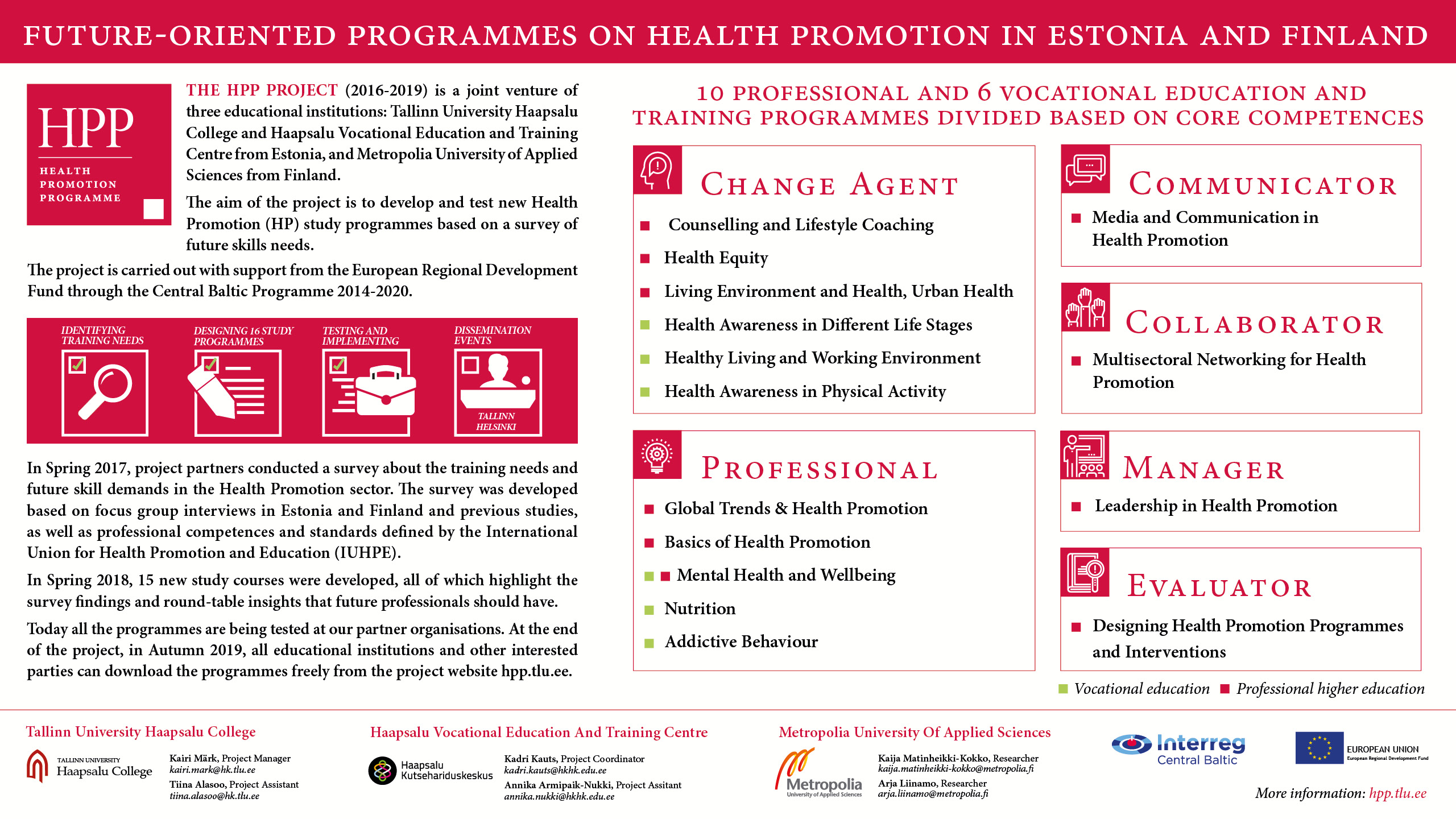Tiina Alasoo tiina.alasoo@tlu.ee
Tallinn University Haapsalu College
Visions from the 11th Public Health Conference in Ljubljana
The European Public Health Association (EUPHA) has been organising annual scientific conferences since the first conference was held in Paris in 1992. There the representatives of national public health associations of 11 European countries established the European Public Health Association and since then the EUPHA has led the way in supporting and promoting the Public Health in Europe.
Today, the annual event is a meeting place for professors, scientists, experts, students, politicians, public servants and researchers, young and experienced, from all over the globe. The 1st Annual Meeting of EUPHA in the Netherlands in 1993 brought together 216 participants and the number has been firmly growing ever since, reaching 2002 last year in Sweden. During the 11th meeting (November 28 – December 1, 2018), 1650 participants from 65 countries worldwide met in Ljubljana, Slovenia to present their ideas, exchange thoughts and discuss about the challenges that shape our future.
Winds of Change are blowing
During the four days and over 180 sessions, “digitisation” and “globalisation” popped up as one of the causes of those changes. To assess the emerging risks, the Second Plenary flew us into the future – a clever solution for predicting the needed changes while observing today’s situation from the year 20301HPP survey was based on the same methodical approach. During the session the need for cross-sectoral collaboration in Europe and beyond was indicated as essential; people from different fields would have to collaborate more closely, starting with the Health in All Policies strategy and planning Healthy Cities.
The cross-sectoral cooperation was repeatedly mentioned in other presentations as well as during the HPP oral presentation “Competence demands for future health promotion“. The Ljubljana statements refer to the need to train the 21st century Public Health Professionals to be well informed, well spoken and well connected in and outside the field of public health. We couldn’t agree more, as it is also one of the HPP project’s dream to have a wider use for the developed programmes in and outside the field of public health.
The Fourth Plenary pointed out once again the importance of good and well-addressed communication as well as the use of suitable media channels. Aljoša Bagola made an engaging presentation about storytelling while also highlighting the need to be aware of the risks of social media. Together with Jan Eyckmans the whole plenary demonstrated the importance of having experts in different fields working together. The communication is more effective if you have a good spokesman on your side who uses simple messages and is flexible, going ‘where’ the audience is (Instagram, Snapchat, YouTube).
The EPH Conference in Ljubljana comprehensively supported the main topics of HPP programmes that we introduced during an oral and poster presentation. HPP courses are developed to contribute into the following abilities:
- Enabling change (Change Agent) – aims to strengthen the competences of professionals to enable change towards equity in health and well-being and to enable all people to achieve their fullest health potential.
- Knowledge and awareness (Professional) – aims to raise the understanding of
- core concepts and principles of HP;
- risk and protection factors;
- emerging health risks.
- Communication (Communicator) – using appropriate communication methods and evidence based information.
- Mediate through Partnership (Collaborator) – mediate by all levels concerned and between differing interests in society for the pursuit of health and well-being of people.
- Leadership (Manager) – lead HP actions effectively towards a shared vision and strategic direction.
- Needs assessment (Evaluator) – ways and means to conduct needs assessment effectively at different levels.
Inspired by the EPH, we aim to compose one Vocational Education and Training programme “Health awareness in different life stages” as thoughtfully as possible. The focus of all the developed programmes is to provide strong basic knowledge for all our students and future Health Specialists regardless of the specific field.
The listed study courses are being tested, updated and improved until spring 2019.
At the end of the project, all 10+6 programmes will be available on this website for a free download.




